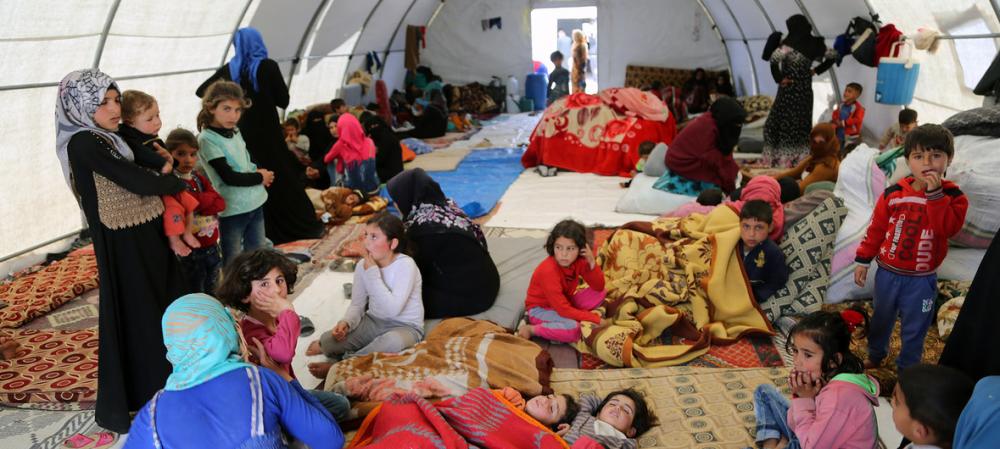Just Earth News | @justearthnews | 18 May 2019

New York: The UN’s Political and Humanitarian Affairs chiefs on Friday called on the Security Council to unite in support of an immediate de-escalation of fighting around Syria’s Idlib province, and work towards an enduring political solution on behalf of the Syrian people.
The UN’s head of Political and Peacebuilding Affairs, Rosemary DiCarlo told members that “we have been here before: in Aleppo, Eastern Ghouta and Raqqa” where civilian casualties mounted along with an all-out offensive by the Syrian Government and its allies.
“If the escalation continues, and the offensive pushes forward, we risk catastrophic humanitarian fallout and threats to international peace and security”, she said, giving a cautious welcome to the announcement on Wednesday of a new Turkish-Russian working group, convened to try and salvage the military buffer-zone deal reached between the two nations last September over Idlib.
The top former United States diplomat said the UN had followed the intensifying violence which has reportedly killed more than 100 civilians, and displaced around 180,000 already displaced civilians, “with great concern”.
Fighting terrorists, can’t trump international legal obligations
She noted the presence of the terrorist group Hayat Tahrir al-Sham (HTS), which reportedly now holds sway in much of Idlib, saying that “the international community agrees” that it’s presence “must be addressed. But with three million civilians in close quarters, combatting terrorism cannot be allowed to supercede obligations under international law.”
DiCarlo said the UN-facilitated political track needed to be revitalized, adding that if the Council can work together in support of Russia and Turkey’s ceasefire commitment “then we can work towards restoring a nationwide ceasefire and consensus” in line with previous Resolutions.
“International cooperation and support of the Geneva process is critical if Special Envoy (Geir) Pedersen is to realize his mandate” she said, adding that “the conflict is Syria is complex but there is a path forward.”
“Let us unite today for the first step – to support an immediate de-escalation of the violence in greater Idlib and work towards a political solution that meets the legitimate aspirations of the Syrian people”, she concluded.
‘Our worst fears are now coming true’ – UN relief chief Lowcock
Despite repeated warnings from the UN Secretary-General and others, the decision by the Syrian Government and allies - which include Security Council permament-member Russia - to intensify a military offensive on Idlib in recent weeks, means that “our worst fears are now coming true”, said Emergency Relief Coordinator, Mark Lowcock.
He reminded Council members that “the innocent civilians of course hugely out-number the men with guns” across Idlib. While many of the 180,000 newly-displaced have moved to camps in the past three weeks, “more than 80,000 people have found themselves with nowhere to go, so they are simply parked in open fields or sheltering under trees.”
At least three IDP camps had been attacked with resulting deaths and injuries, and 17 schools damaged and destroyed, with more than 400,000 unable to sit for important exams. The UN humanitarian response would be completely overwhelmed if a full military incursion takes place, he added.
The escalation in attacks on medical facilities inside the escalation zone, was the biggest cause for concern he said, noting the World Health Organization (WHO) had confirmed 20 attacks on 18 different facilities – or one per day, in the past three weeks.
‘What is the point of the Security Council passing resolutions like that if States are not going to comply with them?’
He ended his briefing with a chilling list of factual responses to some key questions put to his office in recent weeks, by Member States, NGOs, doctors and families affected by fighting in the Idlib zone. Here is the full transcript of his closing remarks:
UNICEF/Ahmad Al Ahmad